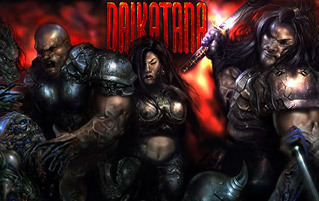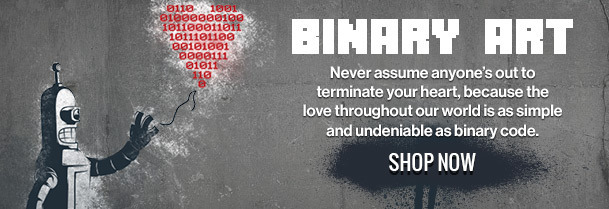5 Things We Learned Making The Biggest Flop In Game History

The video game Daikatana came out in 2000, but it's still one of the industry's biggest punchlines, right up there with Duke Nukem Forever and EA. It was supposed to be a hit: a new title developed by a bunch of talented people with grand ideas ... who got hit with so many delays, unexpected costs, and internal strife that the whole thing eventually imploded like a vortex bomb. We spoke with Matthew Cox, a senior artist, and Zach Baker, a programmer, who kindly agreed to tell us about their time working on the Waterworld of gaming.
Daikatana Created Gaming's First Rock Stars

Daikatana was the brainchild of John Romero, who had both the reputation and the luxurious, law-breakin' hair of a rock star.

Romero got his start at id Software, where he played a major role in the development of Wolfenstein 3D, Doom, Quake, and other games that basically invented the first-person-shooter genre. So when Romero left id, co-founded a company called Ion Storm, and announced a time-traveling epic that would take the player and an intelligent sidekick through a near-future San Francisco, 25th-century Japan, Ancient Greece, and Dark Age Norway, every nerd on the planet started hyperventilating into their lunch bag. Oh, but don't let us over-hype it ... let Time magazine do that:
"Everything that game designer John Romero touches turns to gore. And to gold," they said. "Romero ... wore the mantle of pop-culture godhood with aplomb," they gasped. The whole idea of sidekicks in a video game was a "bold departure" that would "help turn mere games into immersive dramas," Time screeched, before being overwhelmed with zealous lust and fainting dead away.

Pictured: Immersive drama.
We don't blame them -- the description of Daikatana sounds awesome even today. And that's because, even today, it's ambitious. In 1997, it was a unicorn fart up a rainbow. It's no coincidence that Daikatana was developed between '97 and 2000, the exact span of the dot-com bubble. Technology was getting big, gaming was getting even bigger, and everyone thought the money would flow forever. Time called John Romero a god because the industry had reached a place where it needed one. And who do you blame when shit goes sideways?
That's right: Gary from accounting.
Oh no, wait: God. You blame God.
"Develop Games Like A Rock Star" Turns Out To Be A Bad Business Plan

Ion Storm had an office on the top floor of the Chase Tower in Dallas, and that prestigious real estate didn't come cheap -- Matt caught a peek at a budget spreadsheet and saw that the rent was over $1.1 million a month. The way Matt and Zach described the office made it sound awesome but ridiculously impractical, like using an F1 car to commute to your downtown office job.

If you've never thought of Dallas as a major hub of the game industry, that's because it's not. Ion Storm sure tried their hardest to turn it into one, though -- mostly by backhanding the problem with great wobbling stacks of cash. When Zach was brought in on loan from another company as a "firefighter," he was flown in from L.A. and paid a tidy sum to do so. He wasn't the only one:
"Dallas was a difficult place to staff people with an appropriate background to work on an epic, blockbuster game. John complained about that from time to time, the difficulty of finding people he wanted to have on the team and from bringing people out from the Bay Area."

As an example of just how much money was wasted, Matt points to Ion Storm's in-office movie theater. The projection bulbs were "some kind of crazy amount of money to replace," but people kept burning them out because they didn't follow the instructions correctly. Eventually Ion Storm either stopped replacing them or just stopped using the theater, and so it just sat there.

and were eventually just shut off.
By contrast, Zach points out:
"Id had a first-floor office in a nondescript office park. Not much to look at. It was surprising how small they were. Ion Storm had grown so much so quickly, but id had started around a core group of people and grown slowly."

Id's lobby, where you must have an appointment or face the Demon. Wait, sorry,
this actually says "Debbie." Make an appointment or face Debbie. The Failure Of

For all of its notoriety, Daikatana was not objectively that bad. It wasn't good, but stripped of all the hype, and accounting for its age, it wasn't a digital uppercut to the ovaries like history would have us believe. We're not alone in our opinion -- retrospective reviews claim "Daikatana was never dreadful. It just made some pretty dreadful mistakes." Even at the time of release it wasn't universally panned; while many reviews were negative, a lot were in the 70 to 80 percent range.

But "it's OK, we guess" doesn't cut it after three years of hype, rumors, intrigue, and promises. If you pay a hundred bucks for a wagyu steak and somebody hands you a pretty decent burger instead, you're going to be justifiably pissed. Everybody in the industry took special note of the consumer backlash. There's a cautious attitude toward innovation in gaming today, and Daikatana may be partially to blame for that. Even gaming household-names, like Miyamoto and Sid Meier, mostly make games similar to what brought them success in the past. If they do try something new, it's generally low-key and low-budget (raise your hand if you played Meier's turn-based tablet game about World War I fighter planes).
Ion Storm Couldn't Keep Employees, And That Affected The Game

Daikatana was the victim of constant leaks, which included a cache of emails that made Ion Storm look like Melrose Place for dorks. They had a turnover rate you generally only see among medical-test volunteers. The high-level in-fighting culminated in eight employees simultaneously leaving in dramatic fashion. Seriously, they all walked out after receiving a cryptic message that said "The monkey has landed" -- the secret signal that the check to start their own studio was in the bank.

because the gaming industry is funny like that.
Matt told us one story that summed up the problem with the turnover perfectly:
"During a meeting I explained to John that I was working on the end-game cinematics with Kage . I pronounced it 'Cage.' Romero giggled. 'Who? What? What are you working on?' I said it again. Now everyone was laughing at me. Romero: 'Who? Say it again!' Me: 'Um ... Kage?' Romero: 'No, dude! It's pronounced Kah-gee!' Me: 'Um ... well, you better check the voiceover recordings, because it's 'Cage.' And suddenly Romero's face turned white. Half the audio in the game had his name pronounced wrong, and it was too late to fix."

Each character's dialogue had been recorded separately, and no one on the old staff had told the new staff about the proper pronunciation. It sounds like such an easily avoidable error, but that's what happens when your employees are disappearing faster than a magician the day rent is due.
Daikatana Inadvertently Changed The Way Games Are Advertised

Much like the first time you had sex, game developers back in 1997 didn't know there was such a thing as too much excitement and anticipation. That's a lesson the industry learned quickly after Daikatana. As Zach points out:
"Projects are announced and revealed in a much more cautious way now. There's not the same urgency to get hype started early. A lot of people at that time thought that anticipation could only be positive, and was the first time we saw anticipation turn bitter."

If you keep a project relatively secret, you can make as many changes as you need to ensure the final product turns out good -- that's why Cracked's new rap label is evolving nicely. Zach worked on one game where they changed the main character a third of the way through production. They had to throw out a bunch of hard work, but it was necessary to improve the final product. But once you've announced, say, four time periods and dozens of monsters, you're committed to delivering them. As Zach explains:
"Once you have the people with their money spend their marketing dollars, they see that as a commitment. Especially since games have become much more expensive to market. It's become even more essential that you have a very clear message, and you're not going to have people spend their time promoting something too soon."

doesn't cut it as a marketing strategy anymore.
Video games still hop on board and derail the hype train today, of course (*cough* Destiny *cough*), but Daikatana was hyped up in a way you'll probably never see again. Zach thinks that, had it been made in a different climate, Ion Storm would have quietly killed a whole bunch of ideas before announcing them, gone with something more modest, and given us a perfectly fine game that we'd never know was almost an insane screeching fireball of a failure.
You can check out Matt's portfolio at his website.
For more insider perspectives, check out 6 Inside Facts About Jeopardy From A 74-Episode Winner and 6 Ways Prison Is More Horrifying Than Movies Make It Look.
Are you on reddit? Check it: We are too! Click on over to our best of Cracked subreddit.
Have a story to share with Cracked? Email us here.
